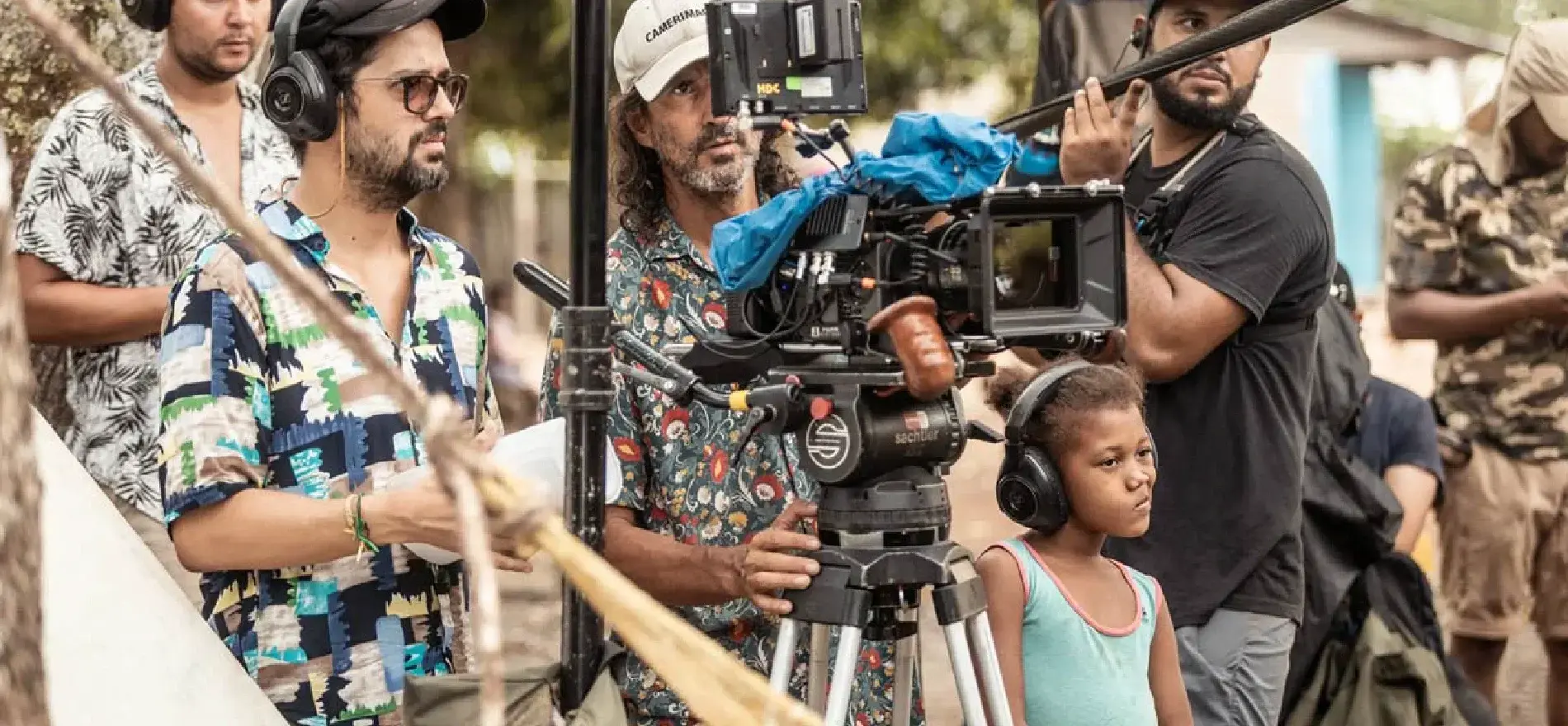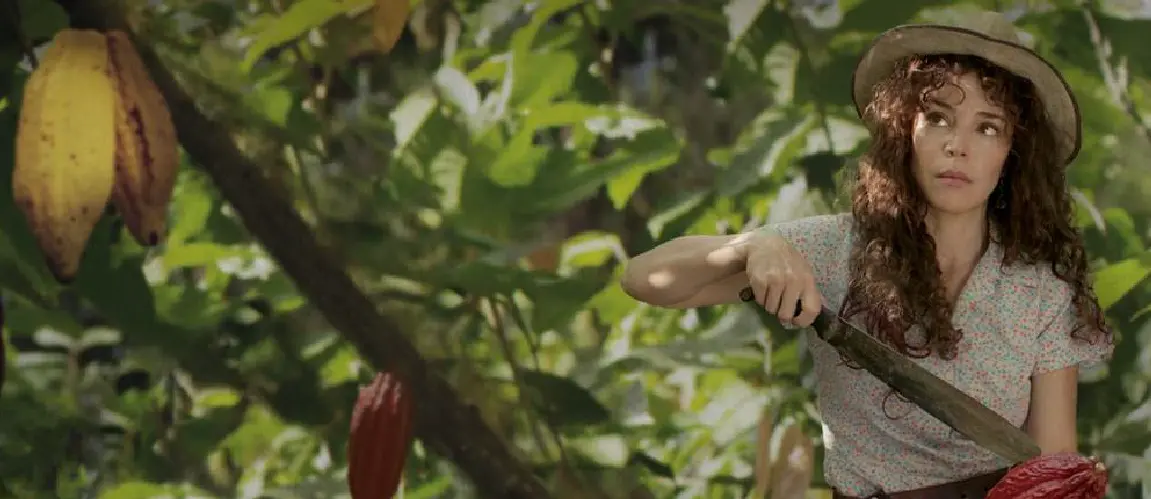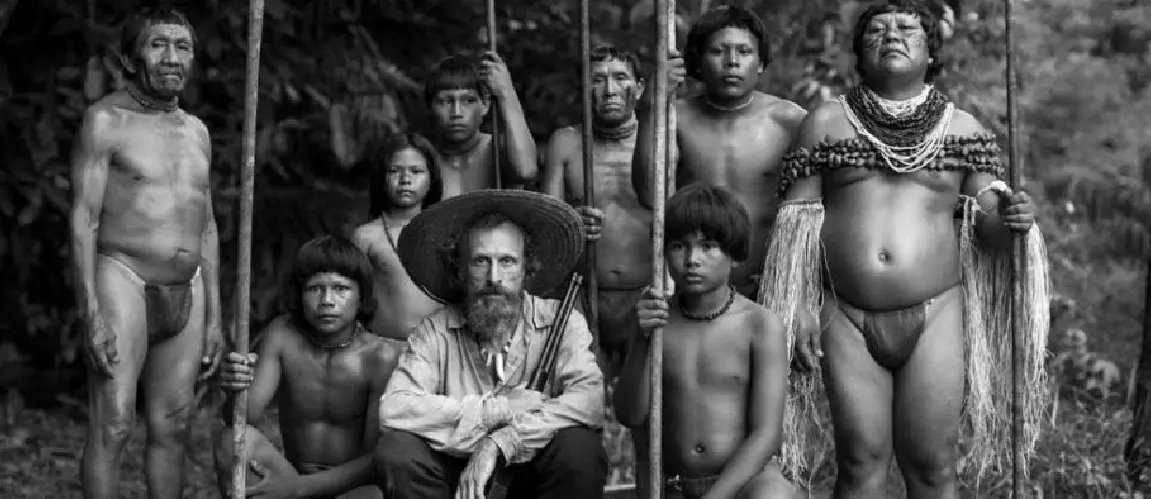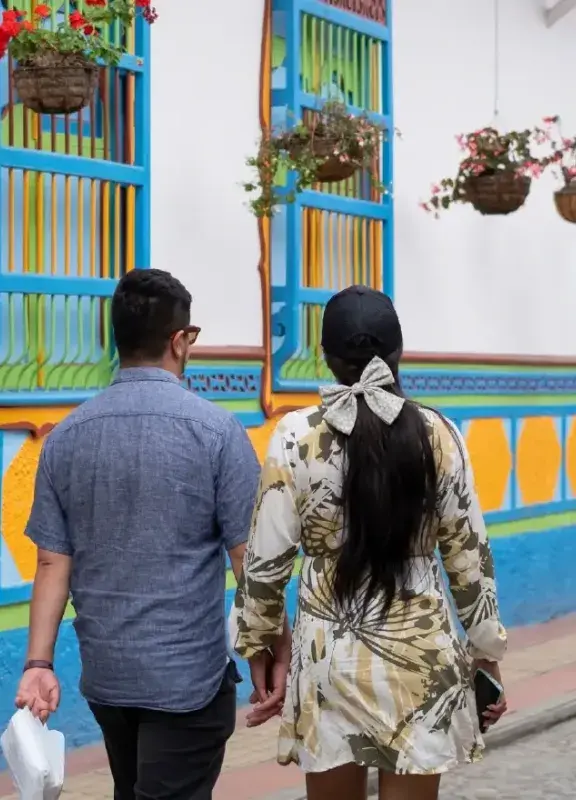Discover 5 Colombian movies that made history
Relive the best of Colombian cinema with these films that have shone at festivals and captivated audiences around the world.

National cinema reflects the cultural richness of the country with proposals that cross borders, move audiences, and surprise with the strength of their stories and visual narrative. In this article, we present five Colombian films that have made history in the film industry, leaving an indelible mark both in the country and at international festivals.
Itzia, Tango & Cacao

Directed and starring Flora Martínez, Itzia, Tango & Cacao tells the story of a deaf-mute cacao farmer who unexpectedly begins to hear a strange melody always coming from the same cardinal point. Convinced it is not a hallucination, Itzia embarks on a journey to find the origin of this music, a journey that will connect her with her roots and lead her to discover deep truths. Filmed between Zipaquirá and San Vicente de Chucurí, the Colombian film blends magical realism and gives visibility to more than 500,000 people with hearing disabilities in Colombia, highlighting how cacao cultivation has been key in transforming territories and communities.
The film premiered in Colombian theaters on October 26, 2023, becoming the most notable national film of the year, staying in theaters for over eight weeks. The film was recognized and awarded “Best Actress” and “Best Film” at the European Cinematography Awards, and participated in more than twenty international festivals, earning accolades in countries such as Greece, the United States, Germany, the United Kingdom, France, Japan, India, and Canada.
You may also like: The Colombian film industry each time closer to the Oscars
La Suprema

Inspired by the legacy of boxer Kid Pambelé, La Suprema is a standout production in national cinema. Starring Cartagena natives Elizabeth Martínez and Antonio Jiménez, alongside Pabla Flórez, the film tells the story of Laureana, a young woman from the Greater Colombian Caribbean who dreams of becoming a boxer while living in a small town called La Suprema. The production was filmed in the village of the same name in the municipality of María La Baja (Bolívar), where much of the local population actively participated in the filming. This cinematic work highlights a way of producing films rooted in the realities of the territory, bringing authenticity to the Colombian film industry.
La Suprema was selected for the Cartagena de Indias International Film Festival, Colombia (FICCI) in 2024, and has been featured in important showcases of world cinema. Its international premiere took place at the Toronto International Film Festival, and it was part of the official selection in events such as the Warsaw Festival in Poland, the Rio de Janeiro Film Festival, the Havana Film Festival (where it won the Coral Award for Post-production), and the Fribourg International Film Festival in Switzerland, where it was honored with the Ecumenical Jury Prize.
Un Poeta

The film Un Poeta, shot in Medellín, follows the story of Óscar Restrepo, an aging poet trapped in routine and alcohol, whose world changes when he meets Yurlady, a young student with an innate talent for poetry. The encounter between them creates an unexpected and deep connection that explores themes such as artistic failure, generational bonds, and the vindication of art as a tool for redemption. The narrative uses subtle humor to portray the character’s daily life and reveal his current situation.
In May 2025, Un Poeta was awarded the Special Jury Prize in the Un Certain Regard section of the Cannes Film Festival, the second most important recognition in that category. This achievement consolidated director Simón Mesa Soto as a leading voice in contemporary Colombian cinema and was a source of national pride, reaffirming the international projection that highlights the talent of national cinema on one of the most demanding stages in global cinema.
You may also like: 5 Colombian writers who have captivated the world with their words
La estrategia del caracol

The film La estrategia del caracol, directed by Sergio Cabrera and released in 1993, is a classic of Colombian cinema that combines drama and comedy to portray the solidarity of a group of tenants who, faced with the threat of eviction in Bogotá, devise an ingenious strategy to keep their home. Based on true events and inspired by a news article, this work offers a deep social critique and a narrative style full of humor and symbolism.
Since its release, the film has been recognized with multiple international awards: it won the Golden Spike, the Audience Award, and the Youth Award at the Valladolid International Film Week (Spain); the Grand Golden Sun Prize and distinctions in Biarritz (France); the Grand Golden Columbus Prize in Huelva (Spain); and earned recognition in Cuba and Berlin, including the OCIC award at the International Young Film Forum. It was also nominated for Best Foreign Spanish-Language Film at the Goya Awards.
You may also like: The hit television series telling the world about Colombia
El abrazo de la serpiente

The film El abrazo de la serpiente, directed by Ciro Guerra, is a historical Colombian film that portrays the encounter between Amazonian shaman Karamakate and two Western explorers in search of the mythical yakruna plant. Shot in black and white in the Colombian Amazon and in indigenous languages, the film offers a poetic and reflective immersion into the ancestral worldview, highlighting the country’s ethnic and environmental richness.
This production marked a milestone in cinema and culture in Colombia, becoming the country’s first film nominated for an Oscar in the Best Foreign Language Film category (2016). Winner of the prestigious Art Cinema Award at the Cannes Directors’ Fortnight, it also earned recognition at festivals such as Lima and Mar del Plata. Additionally, it won eight Macondo Awards in Colombia and four Fénix Awards in Ibero-American film events.
These productions not only reaffirm the country’s talent and creativity but also reflect the diversity of voices, territories, and memories that shape cinema and culture in Colombia. Their impact at international festivals and recognition by global audiences are proof of the narrative power of our stories, which manage to move, question, and connect with the world.
 Welcome, you are in
Welcome, you are in 













